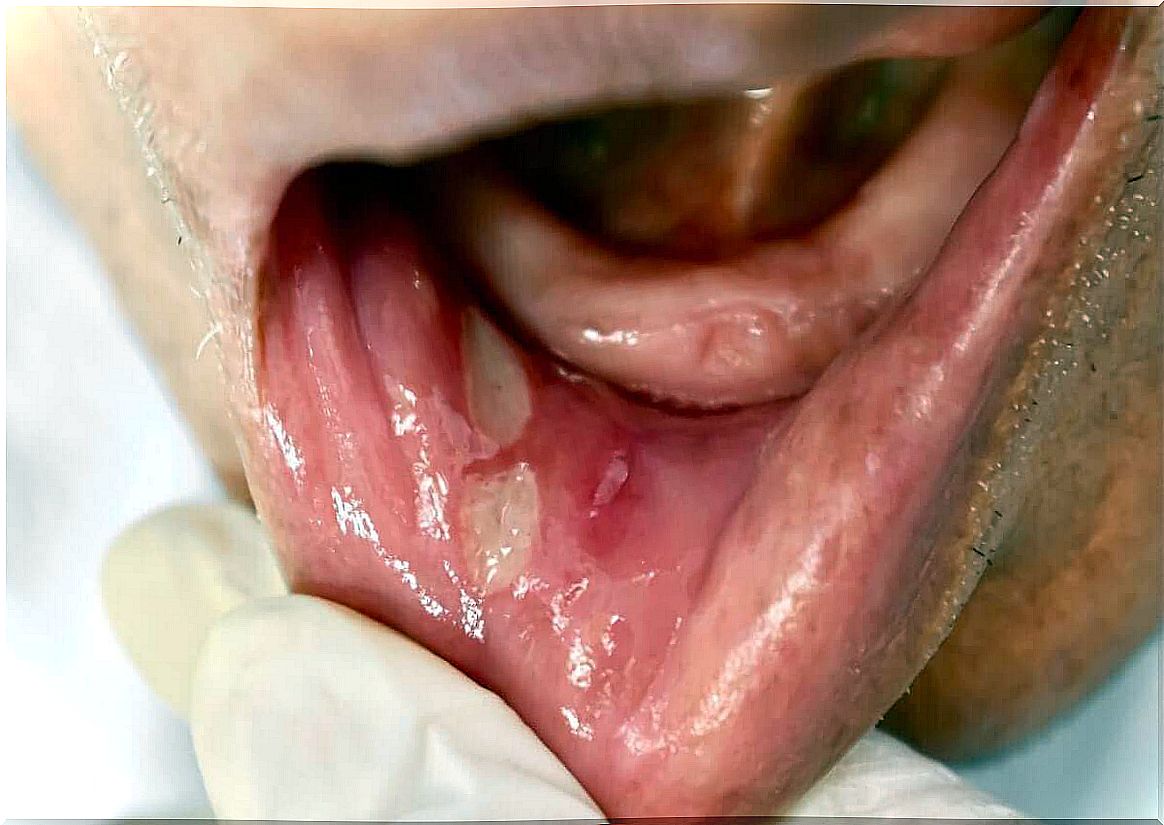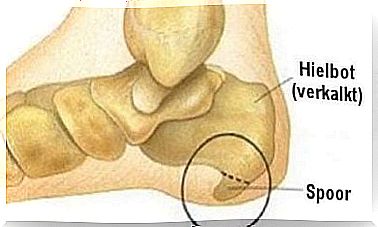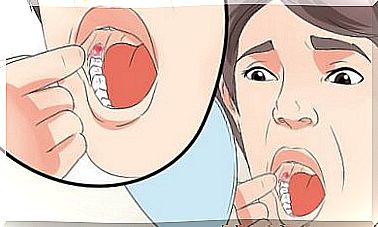Everything You Need To Know About Mouth Ulcers

Mouth ulcers are lesions that appear on the lips or on the gums. They can also appear on the inside of the cheeks, the palate, and around the tonsils.
These lesions are often painful, so activities such as brushing your teeth, eating, drinking, or talking may cause some discomfort. Ulcers usually appear as a whitish oval with a red area around it.
Specialists think (Spanish link) that they affect about 25% of the population. They are more common in women, adolescents, and those with a family history of this condition. They are not contagious and rarely pose a health risk to the person who has them.
Types of Mouth Ulcers
Mouth ulcers can be classified in several ways. If they appear only very occasionally, they are acute. However, if they recur, then they are considered chronic. According to their clinical manifestations, they can be of three types: large, small or herpetiform. Let’s take a closer look at each of them.
Big
Large ulcers or canker sores are more than 10 millimeters in diameter and can appear singly or in groups. These sores penetrate deeper into the tissue and usually remain there for more than a week, some even months. They can leave a scar when they disappear and they are usually located on:
- The lips
- The palate
- The tongue
- the pharynx
- Inside of the cheeks
Small
Small canker sores are less than 10 millimeters in diameter and are the most common form. They are shallow and are located at the edges of the tongue or the internal mucosa of the lips or cheeks.
They cause intense pain that radiates to adjacent areas, but they usually go away on their own in less than a week (Spanish link). The sores appear intermittently several times.
herpetiformis
These types of mouth sores form sores that resemble those caused by herpes. Herpetiformis are not contagious, although they tend to reappear. They occur in groups of several small ones that are never larger than 3 millimeters. Sometimes they come together and form larger lesions.
Why do sores appear in the mouth?

There are many reasons why sores can develop in the mouth. In most cases, they are caused by a number of triggers. These triggers include:
- Friction with misaligned or broken teeth. Friction with dentures or braces can also be a problem.
- Injury caused by vigorous brushing or dental or oral hygiene products containing sodium lauryl sulfate.
- Very hot foods that cause burns, or burns caused by smoking (Spanish link).
Response to certain drugs and hormonal changes caused by menstruation in women.
- Emotional stress and lack of sleep.
Sometimes mouth ulcers are caused by a deficiency of vitamin B12, zinc, folic acid or iron. They can also be an allergic reaction to bacteria in the mouth.
There are more serious cases where these lesions in the mouth are a manifestation of serious underlying health conditions, for example:
- Inflammatory Bowel Disease
- Diabetes mellitus
- HIV/AIDS
- Crohn’s disease
- celiac disease
- Autoimmune Diseases
- Oral cancer (Spanish link)
Treatments for Mouth Ulcers
Most mouth ulcers or ulcers are harmless and do not require treatment. They usually go into remission within 7-14 days. In principle, it is appropriate to determine whether products, food or medicines are the cause. If this is the case, it is best to replace these elements with other products that do not cause any problems.
If they are the result of injury or if the cause is unknown, treatment for canker sores involves making some changes to your routine and using natural remedies to relieve symptoms:
- Rinse your mouth with warm, slightly salty water: three times a day for four minutes. Gargle with cold water several times.
- Drink plenty of fluids and avoid hot, spicy, citrus fruits, or very salty or spicy foods. Of course, avoid using tobacco.
- You can use over-the-counter pain relievers, such as acetaminophen.
- Sports or relaxation during stress are options that divert attention from the discomfort.
- Use a soft-bristled toothbrush and see your dentist if your teeth are in bad shape.
If the symptoms are very severe, the home remedies don’t work or the problem returns (Spanish link), we strongly recommend that you see your doctor. You may need more than just home remedies and a change in your routine.
Any complications
The main possible complication is that the problem comes back too often, or superinfection of the sores occurs. To prevent this, your doctor may prescribe topical oral antiseptics containing chlorhexidine hydrochloride, hexetidine, povidone iodine, benzalkonium chloride, or sodium borate.
Your doctor should indicate how they should be administered. In a number of cases, doctors may even prescribe antibiotics (Spanish link), especially if the sores are large or recurrent.
Prevention and Recommendations to Prevent Mouth Ulcers

The best way to prevent cold sores is to practice good hygiene habits. You should brush your teeth at least three times a day, use dental floss, and use a non-irritating rinse. You should also see your dentist at least once a year.
A healthy, balanced diet helps prevent this condition. If it is recurring, it is advisable to avoid foods that can irritate the mouth, such as acids, spices or highly spicy foods. It is also important to be aware of possible allergies.
Regular exercise and the practice of relaxation techniques are effective measures to manage stress. While mouth ulcers are not usually a cause for concern, in a number of cases they require medical attention. Here are some cases to watch out for:
- As they begin to spread and gradually increase in size.
- If they cause too much pain or discomfort.
- When they remain in place for more than three weeks.
- When they look strange or form a stain in the mouth.
We also recommend seeing a specialist if the pain is very severe or if these sores are causing additional symptoms, such as a fever. Sometimes these small measures are crucial to prevent major problems in the future.









